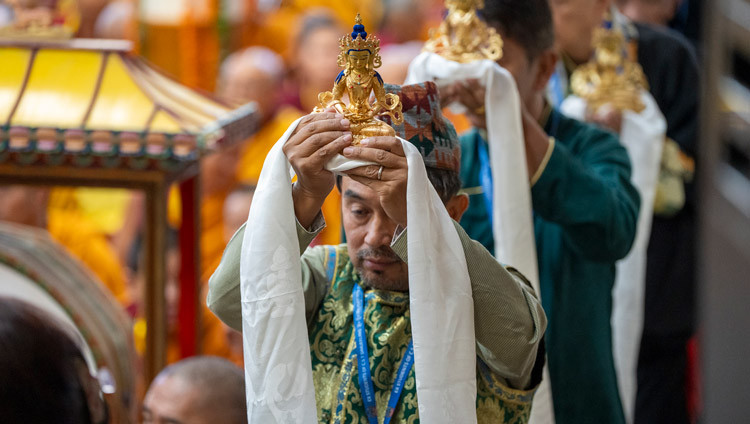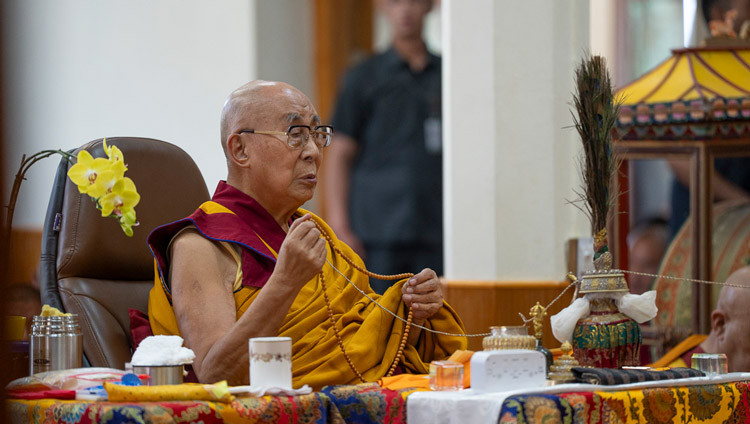Jetsunma Nakmo Permission
January 5, 2020
Bodhgaya, Bihar, India – Walking from Ganden Phelgyeling Monastery to the Kalachakra Ground this morning, His Holiness the Dalai Lama stopped regularly to engage with people standing by the way. He seemed drawn to many by their smiling faces and folded hands, but he also reached out to children, elderly men and women and people holding statues for blessing. When he reached the stage, he stood to have his photograph taken with a group of monks and nuns, who came top in a memorization competition held to celebrate the 600th anniversary of Jé Tsongkhapa’s enlightenment and passing away.
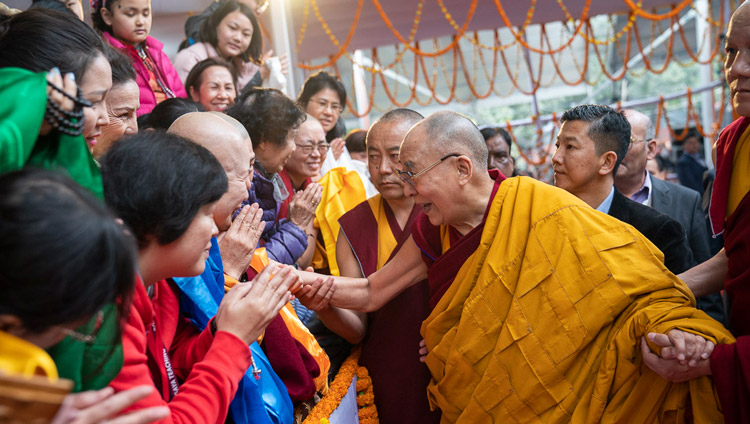
Today, ten Burmese monks conducted a recitation from the ‘Mangala Sutta’ in Pali. A group of monastics and laypeople from Russia, several of them from Tuva, declaimed the ‘Heart Sutra’ in Russian, and were followed by a mixed group of monastics and laypeople who chanted it again in English.
His Holiness announced that today, from the Manjushri Cycle, he was going to give the permission of a deity called Jetsunma Nakmo. He suggested that while he undertook the preparatory procedures, the audience could recite the ‘Mig-tse-ma’ prayer. Before beginning the rite of permission, he asked everyone to recite the ‘Twenty-one Praises to Tara’.
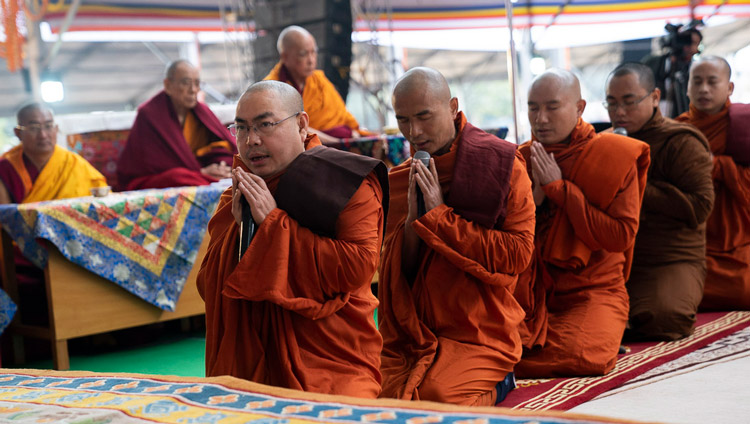
He declared that the first step was to take the bodhisattva vows. “I’ve already explained generating the awakening mind of bodhichitta and taking the bodhisattva vows over the last couple of days,” he said. “Bodhisattvas out of compassion observe sentient beings. They have the courage and determination to liberate beings across the expanse of space from suffering and bring them happiness, finally leading them to Buddhahood.
“Bodhichitta is the ultimate source of all good things. Propelled by wisdom bodhisattvas aim for enlightenment. So, if you wish to make your life meaningful, cultivate bodhichitta. As it is said, “I shall generate the mind of awakening to fulfil the interests of myself and others.” Buddhas of the past have become enlightened on the basis of bodhichitta, those of the present are doing so in the same way, and this is what Buddhas of the future will also do.
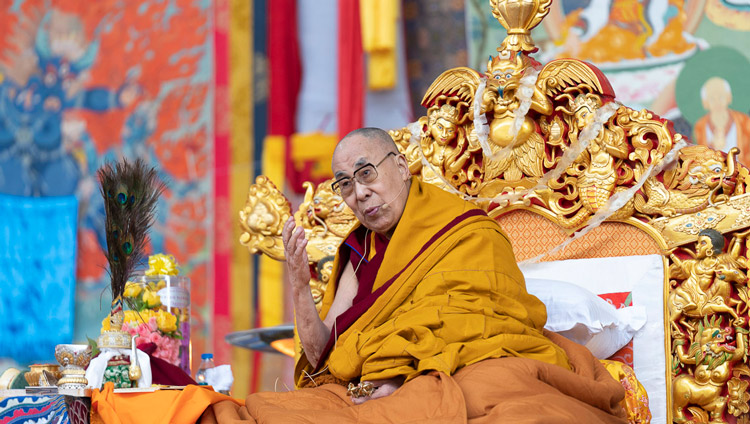
“With the thought, “I will generate the supreme mind of bodhichitta”, evoke the altruistic aspiration for enlightenment in your mind. Remember, just having a good heart and the thought to help others is not enough. You need to pledge to engage in the practices of bodhisattvas. The main practice is to restrain your selfish motives, as we say when we recite the ‘Six Session Guru Yoga’,
From this moment on, without any sense of a loss
I send forth my body, and likewise my wealth,
And my virtues amassed throughout the three times
In order to help all beings, my mothers.
“And as Shantideva writes in his ‘Guide to the Bodhisattva’s Way of Life’,
Now while you are free to act
Present an ever-smiling countenance.
Rid yourself of scowling, wrathful frowns,
And be a true and honest friend to all.
“Gods, nagas, yakshas and so forth should all generate such a mind. Being actively warm-hearted, you’ll be equipped to create a loving, peaceful world. With bodhichitta you’ll complete your collection of merit and purify all negativities. Determine to engage in the practice of bodhisattvas by renewing your bodhisattva vows on a daily basis.
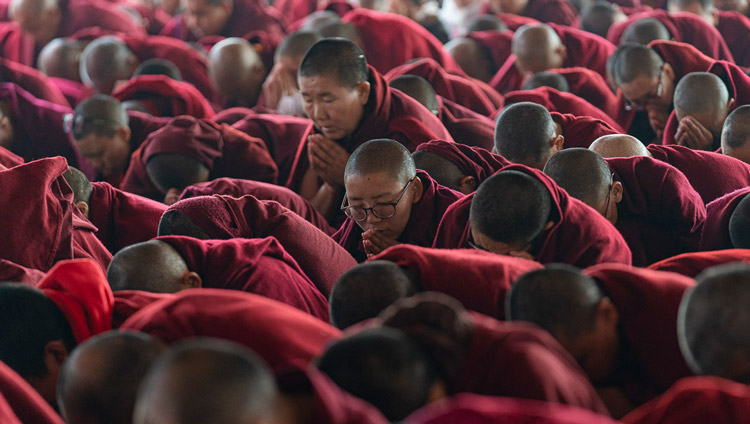
“Cultivating bodhichitta with courage and a sense of inner delight will bring you temporary and lasting happiness. Life after life be determined to help sentient beings. Be a source of sustenance for them as are the earth, water, fire, wind, herbs, and wild forests. In short, have the courage to work for others.”
Before the occasion came to an end, a representative of the Great Prayer Festival Committee announced that following His Holiness’s advice they would make a donation to the UNHCR. Events concluded with a recitation of the ‘Prayer of the Words of Truth’. His Holiness then drove by car from the teaching ground back to the monastery.



